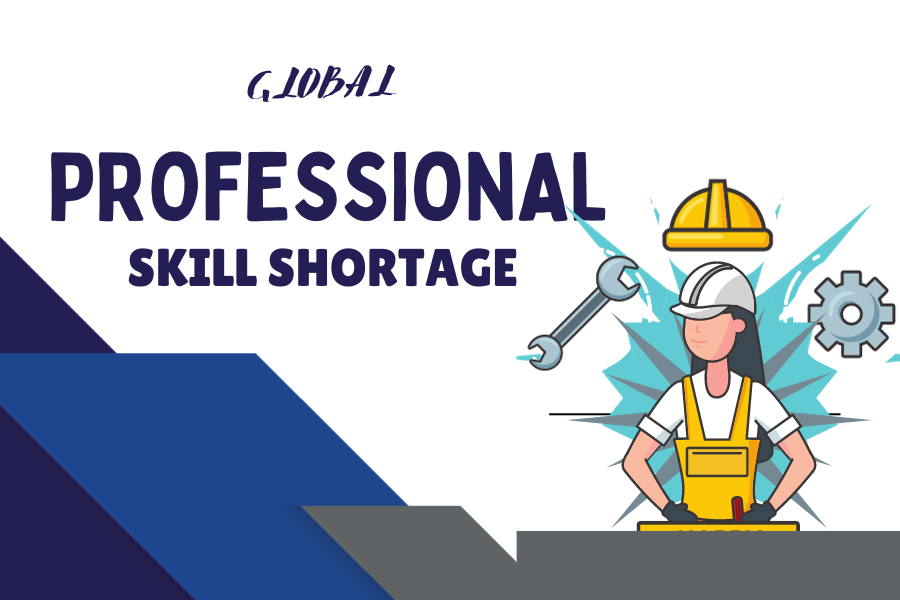In the rapidly evolving landscape of the global market, one challenge stands out prominently – the shortage of professional skills. As industries undergo digital transformations and new technologies reshape business paradigms, the demand for specialized skills has surged, creating a significant gap between the skills employers need and those available in the talent pool.
The Rising Demand for Specialized Skills
The fourth industrial revolution, marked by technological breakthroughs like artificial intelligence, data analytics, and automation, has revolutionized the way businesses operate. As a result, there’s an escalating demand for professionals equipped with expertise in these emerging fields. Industries such as IT, healthcare, finance, and engineering are particularly affected, with employers seeking individuals who can navigate the complexities of modern technologies.
The Impact on Global Industries
The professional skill shortage has profound implications for global industries. Projects are delayed, innovation is hindered, and companies struggle to maintain a competitive edge. Moreover, as businesses compete for a limited pool of skilled professionals, salary expectations rise, putting additional pressure on organizational budgets.
Key Factors Contributing to the Shortage
Rapid Technological Advancements:
The pace at which technology is evolving often outstrips the education and training programs available, leaving a gap between the skills demanded by industries and those possessed by the workforce.
Changing Nature of Work:
The rise of remote work and the gig economy have altered the traditional employment landscape. Companies now require professionals with not only technical skills but also adaptability, communication, and collaboration skills to thrive in diverse work environments.
Educational System Challenges:
Educational institutions face the challenge of keeping their curricula aligned with the dynamic needs of industries. The result is a mismatch between the skills graduates possess and those required by employers.
Strategies to Address the Skill Shortage
Investment in Continuous Learning:
Encouraging a culture of continuous learning within organizations helps employees stay abreast of industry trends and acquire new skills. Employers can support this through training programs, workshops, and partnerships with educational institutions.
Collaboration with Educational Institutions:
Establishing partnerships with universities and vocational schools ensures that educational programs align with industry needs. This collaboration can include internships, mentorship programs, and joint research initiatives.
Embracing Diversity and Inclusion:
Fostering a diverse and inclusive workplace attracts a wider range of talent. By removing barriers to entry for underrepresented groups, organizations can tap into a more extensive pool of skilled professionals.
The Road Ahead
Bridging the professional skill shortage requires a concerted effort from both businesses and educational institutions. A proactive approach to talent development, continuous learning, and collaboration will be crucial in preparing the workforce for the challenges of the future. As industries adapt to the demands of the digital age, addressing the skill shortage is not just a necessity but a strategic imperative for sustained success in the global market.



